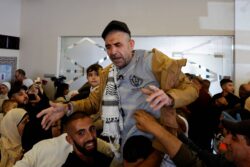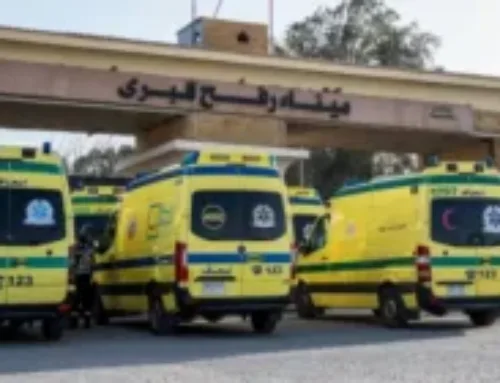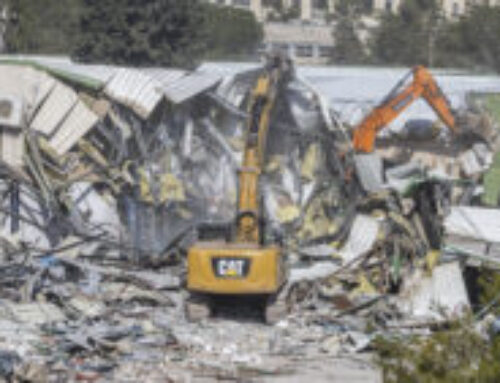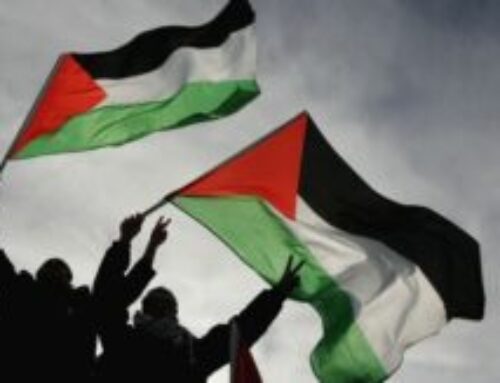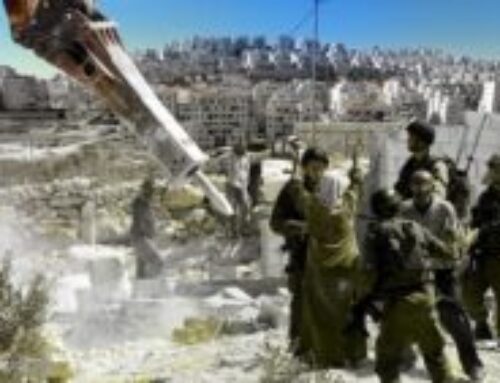Emerging from an endless night, resurrected from the graves after a slow death — their faces are pale, etched with stories of pain; their bodies are frail, their bones are visible, their hair is as long as their absence, their scars stretching across arms, faces, and hearts. The release of the Palestinian detainees from the prisons of the usurping entity was not merely a passing event, but a rebirth — a return of souls engraved with patience and bodies that stand as living testimony to indescribable cruelty.
When the iron doors opened, they stepped out with the faces of those who had crossed through hell. Some walked on one leg, others carried the remnants of broken bodies, and many could not face the light after years in the darkness of the cells. In their hollow eyes trembled the awe of meeting the sun for the first time, and on their features lingered the look of those who have tasted death but refused to die.
Behind the bars, time did not pass — it devoured them slowly. In narrow cells, meals were measured by deprivation and sleep was earned through exhaustion. Some emerged with amputated limbs after being left untreated, while others carried permanent disabilities born of torture. Every mark on their bodies told a story, and every scar bore witness to a jailer stripped of humanity.
Detainee Naji Al-Ja’frawi left prison searching among the faces for that of his brother Saleh — the journalist who had been martyred just hours before his release. He wiped tears from his eyes as though trying to convince himself that life was still possible after such loss. “We came out of the graves… out of death,” he whispered, his trembling voice echoing the undeniable truth: that the occupation’s prisons are not places of detention, but laboratories of slow death.
Elsewhere, journalist Shadi Abu Sido emerged broken and bruised. Speaking with blood in his eye and trembling words, he said, “They broke my chest and my arm. They used the policy of bone-breaking against us.” He added bitterly, “I’ve been hungry for two years — I entered hungry and left hungry.” He revealed that the jailers deliberately struck his eyes because he was a photographer. One of them told him, “I’ll gouge out your eye just as you exposed us through your camera.” His words were less a description than a cry drawn from the depths of memory.
Inside those cells, death breathed slowly. More than 77 detainees have been martyred since October 2023 due to torture and deliberate medical negligence. Those who survived the walls are but shadows of dozens who never returned. Many suffer from chronic illnesses; others lost their ability to walk or see. Even Palestinian doctors were not spared — many remain imprisoned while their patients die one after another behind bars.
The Director General of Al-Shifa Medical Complex, Dr. Muhammad Abu Salmiya, stated that most of the released detainees arrived in catastrophic physical and psychological condition — some with amputations, others with severe untreated wounds. He noted that among the released are critical cases requiring urgent medical intervention after being denied medication and care by the usurping entity.
Yet despite all this darkness, the story cannot end in pain. For each who walked out of those cells carried in his eyes a small, unquenchable light — the light of dignity. The prisons did not win, death did not triumph, and the genocide did not end the story. The freed carried within them a symbol of victory that transcends their individual pain: the triumph of the Palestinian spirit over the machinery of oppression, the victory of faith over the stripping away of humanity.
From within the darkness, new lines have been written into Gaza’s memory — lines not inscribed in ink, but in blood, endurance, and pain. Those who rose from the graves today did not return as they were, but they returned to remind the world that victory is not measured in time or weapons — it is measured by the power to remain human, even when everything conspires to eliminate you.

